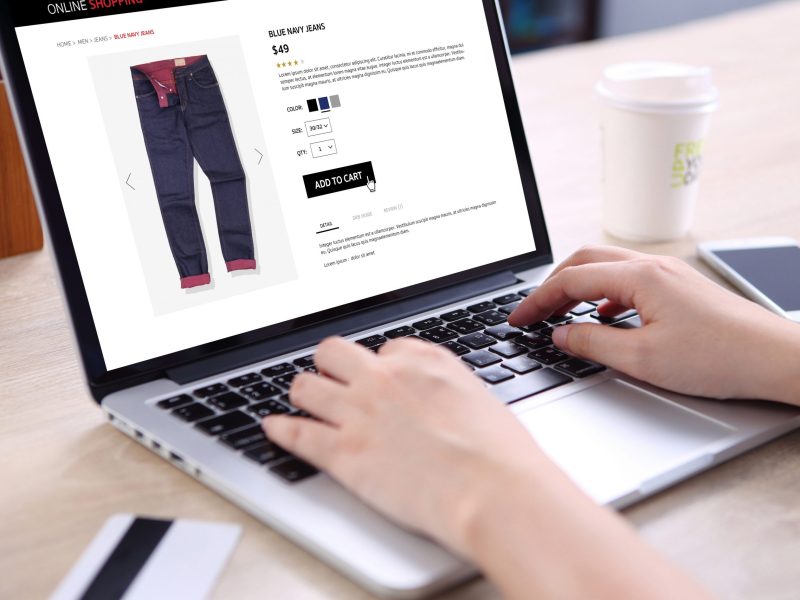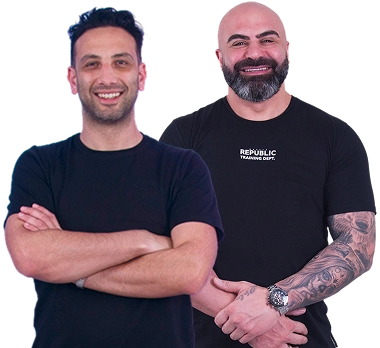It can happen to the best of us: even to seasoned Facebook marketers. You are busy setting up a c;ampaign, and when you’re finally ready to push the launch button, you get the dreaded notification: “Your ad was not approved.” Ugh.
So, why does this happen? The short answer is relatively simple, you’ve probably overlooked some criteria from Facebook’s ad guidelines, so the system denied the ad. The algorithm is rather sensitive and for very good reasons: Facebook wants to provide the best user experience and protect its audience from offensive or inflammatory posts. Sure, some of the rules have to do with your campaign’s set up and not with the content.
The question is: how do you fix this problem and get your campaign going? Facebook doesn’t provide lengthy explanations on why the ad was denied. But we’ve taken our personal experience with Facebook advertising and present you with everything you need to know about how to set up your campaign and avoid getting your Facebook ads rejected.
The Process (in a Nutshell)
Here’s how the process looks like: you create the ad and then submit it for approval. After you’ve placed the order, Facebook will review it and make sure everything follows its ad policies. If anything is out of line, then you won’t get the ad approval.
While we don’t exactly know what goes on during the review process, we can easily assume that most of it is automatic, since there is a high volume of ads coming in internationally. Because of this, it’s possible your ads go through a program that checks a bunch of different criteria. As such, some mistakes can happen, though you can signal them and have your ad re-evaluated.
If after the second evaluation the ad gets approved, then relax. It was a glitch, and you don’t need to worry about it. If it’s not, then something wasn’t in line with Facebook’s guidelines.
It takes about 24 hours after you’ve placed the order for the system to review and approve your ads, though in some cases it may take longer. Facebook will look at the ad images, copy, target audience, and ad landing pages, though the list can vary, depending on the type of ad you want to run.
Reasons for Disapproval
Now comes in the fun part, understanding why Facebook denied your ad. The first thing you need to understand is that Facebook isn’t rejecting your ads to annoy you. The review system is quite sophisticated, and its purpose is to deliver the best possible user experience.
It’s your job to make sure you know these policies by heart and comply with them every time you create an ad. If you don’t yet, we’ve got you covered.
1. Content
First, let’s talk about ad content, one of the first things Facebook will analyse when trying to decide whether to approve or deny an ad request.
Facebook has two different types of content they flag: prohibited and restricted.
a) Prohibited Content
We’re talking here about content that Facebook doesn’t want in its News Feed. The list is pretty long, but you need to review it and make sure you never cross it.
Here’s what to avoid including in your ads:
- Violating community standards – these are the Facebook regulations that ensure the safety and security of its users, and they have to do with nudity, violence, hate speech, bullying, and graphic content;
- Discriminatory practices, of any kind;
- Illegal products and services;
- Tobacco Products;
- Drugs;
- Weapons or explosives;
- Unsafe supplements (as determined by Facebook);
- Adult products or services (except contraceptives or other family planning products;)
- Mature content;
- Misleading or false content;
- Non-functional landing pages;
- Profanity;
- Before and after shots that are exaggerated, and used to promote some weight loss product;
- Bad grammar (no, we’re not kidding);
- Payday loans or bail bonds;
- Multi Level Marketing;
- Low quality or disruptive content;
If your ads contain anything from this list, sorry. There’s no way Facebook will approve them.
b) Restricted Content
Although Facebook allows this type of content, it also wants to keep a close eye on it and regulate it
Here are some examples:
- Alcohol – You can promote alcoholic beverages as long as you comply with local laws, required guidelines and industry codes. For instance, if you want to promote a craft beer in a city where the law requires you to add a specific disclaimer for alcoholic beverages, you must do so on Facebook as well;
- Real Money Gambling – You can run these ads under strict conditions, such as only targeting people of age 18 and older;
- Supplements – You can only advertise pills and other weight loss and diet supplements to people of age 18 and older;
- Pharmacies – You can’t promote prescription drugs, just the pharmacy itself;
- Financial Services – Facebook is very strict about promoting financial services. For instance, you can’t ask for the person’s payment information upfront. If you do, your ad will get rejected;
- Politics or National Issues – Advertisers must complete the Facebook authorisation process.
These subject matters aren’t flat out banned, but you’ll have to be careful and comply with Facebook’s guidelines and requirements.
2. Videos
Videos have their set of rules on Facebook. For instance, you have to ensure your video ads, and other dynamic forms of content don’t use disruptive tactics, such as flashing screens that can affect viewers. Facebook is quick to reject this type of video content.
3. Targeting
Another factor you need to pay attention to when promoting your products and services on Facebook is how you target your audience. You cannot use criteria that openly discriminate, provoke or harass certain users, or that seemingly encourage to engage in discriminatory practices towards others.
4. Text in Ad Image
If your image has too much text in it, it will most likely get flagged, and your ad will be rejected. This principle has more to do with Facebook’s observation that these ads aren’t as effective as other types, so they try to prevent their use as best they can.
5. Information Gathering
Specific ads can ask users to offer some information. For instance, businesses that run contests or competitions on Facebook often ask for email addresses when individual signs up, but don’t expect to be able to acquire any information you want from users.
A lot of things are completely off the table:
- Criminal history;
- Financial information;
- Account numbers;
- ID numbers and information;
- Medical history;
- Insurance policies;
- Race, ethnicity, religion, sexual orientation, or political affiliation.
In some cases, Facebook may allow you to require such information from your users, but under the strict condition that you get their approval first.
6. Positioning
Every ad you submit, and all its elements, must be appropriate and relevant for the product or service you are trying to advertise. Facebook wants to diminish the number of misleading ads it serves to its audience, and give them a stellar user experience.
Moreover, if your ad redirects users to a landing page, make sure the product or service in the ads matches those on the landing page.
7. Data
It’s all about data these days, and Facebook’s been under fire about how they handle ours. So, naturally, they’ve updated their policies and brought in new restrictions to protect users:
- If you collect any data from Facebook ads, you can only share it with someone acting on your behalf (like your service provider). And, even then, remember that you are still responsible for how those providers use the data.
- You cannot use Facebook ad data for retargeting, or redirecting ads on other channels;
- You cannot use Facebook data to create or improve user profiles;
- You cannot sell data you have acquired on Facebook.
In other words, if you get user data from your Facebook ads (and you will), you are responsible for it and have to make sure that it is secured and protected. Mishandling user information can have severe consequences, and getting an ad rejected will be the least of your worries.

Other Things Facebook Want You to Know
In short, these are the criteria on which Facebook can decide to reject an ad. However, apart from the things that have to do with the content of the ad and your targeting strategy, you should also be aware of a few other factors.
First, Facebook considers the advertiser to be directly responsible with complying with all local laws and regulation. If, for instance, you fail to do so, you can get ad approval, but then you’ll be facing other legal repercussions for breaking the law. And Facebook isn’t responsible for that.
Also be aware that all your ads are now public information. If you look at your page, you’ll see a new “Info and ads” tab, where all users can see which of your posts are sponsored. While this option doesn’t affect you, you should still be aware of Facebook’s efforts for a more transparent platform.
And, lastly, these ad policies aren’t set in stone. Facebook reserves the right to change them at any time, without notice. As a business owner, you need to stay up to date to these policies, because you never know how they can affect you.
What to Do if an Ad Is Rejected
So, Facebook rejected your ad. What next? What can you do to fix it?
Well, if it’s something small, like a grammar error or a typo, double check your text and submit the ad again. We know, it can be annoying to get a rejection for something so little, but it’s in your benefit not to promote an ad full of mistakes.
Then, look at the thing we’ve presented above, and edit your ad to comply with Facebook’s policies. The platform lets you make a bunch of different edits without having to create a new ad or campaign:
- Change audiences;
- Change ad creative;
- Change placement;
- Optimise the ad and change delivery choices;
- Modify the budget and the schedule.
When ads go into that gray area of Facebook advertising policies, it’s rather easy to fix them. For example, ads about alcohol are technically allowed, as long as you don’t target minors, and don’t try to connect positive ideas (such as fun or success) to them. You can, however, promote that you’re offering discounts on a particular brand of beer without any problems.
But, if you’re on Facebook’s blacklist, meaning the ad is rejected because the content is prohibited, there’s not a lot you can do. You could try to spin the message and give it a more neutral tone, but it’s unlikely the ad will make it past the initial check-up.
If you feel there’s no reason for Facebook to reject your ad, yet it still does, you can fill out a form and appeal their decision. Keep in mind that you will have to give a short reason for why you think your campaign should get approved. Facebook will review your ad and hopefully, you’ll get the green light the second time around.
Back to You
And, that’s a wrap! These are all the different reasons Facebook can invoke to reject your ad. Except now, you have a better understanding of why that happens.
Practice makes you perfect, so don’t panic if you make a mistake and got the denied mark. Edit and try again; you’ll get the hang of it soon enough.
And if you want some help in that department, we can certainly help. Contact Australian Internet Advertising now, and we can make sure your ads will always comply with the Facebook Advertising policies.




